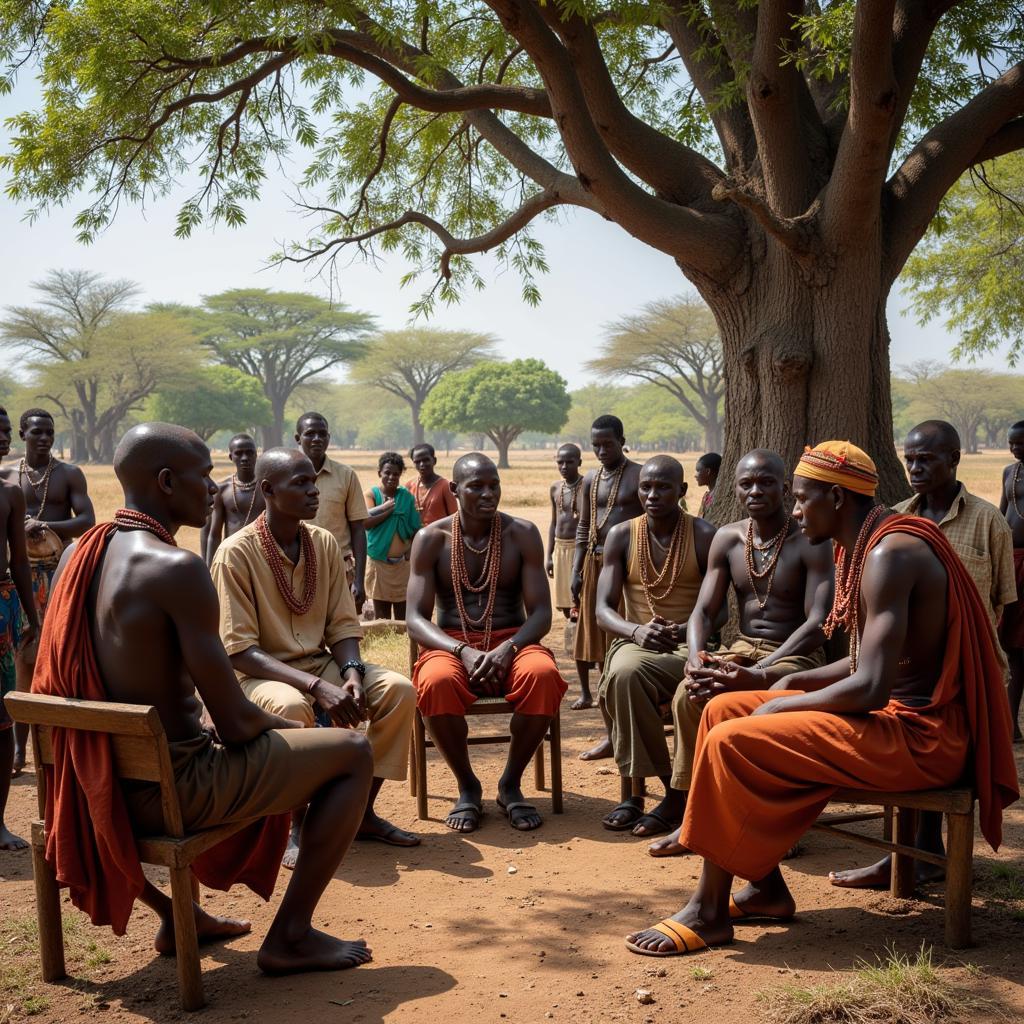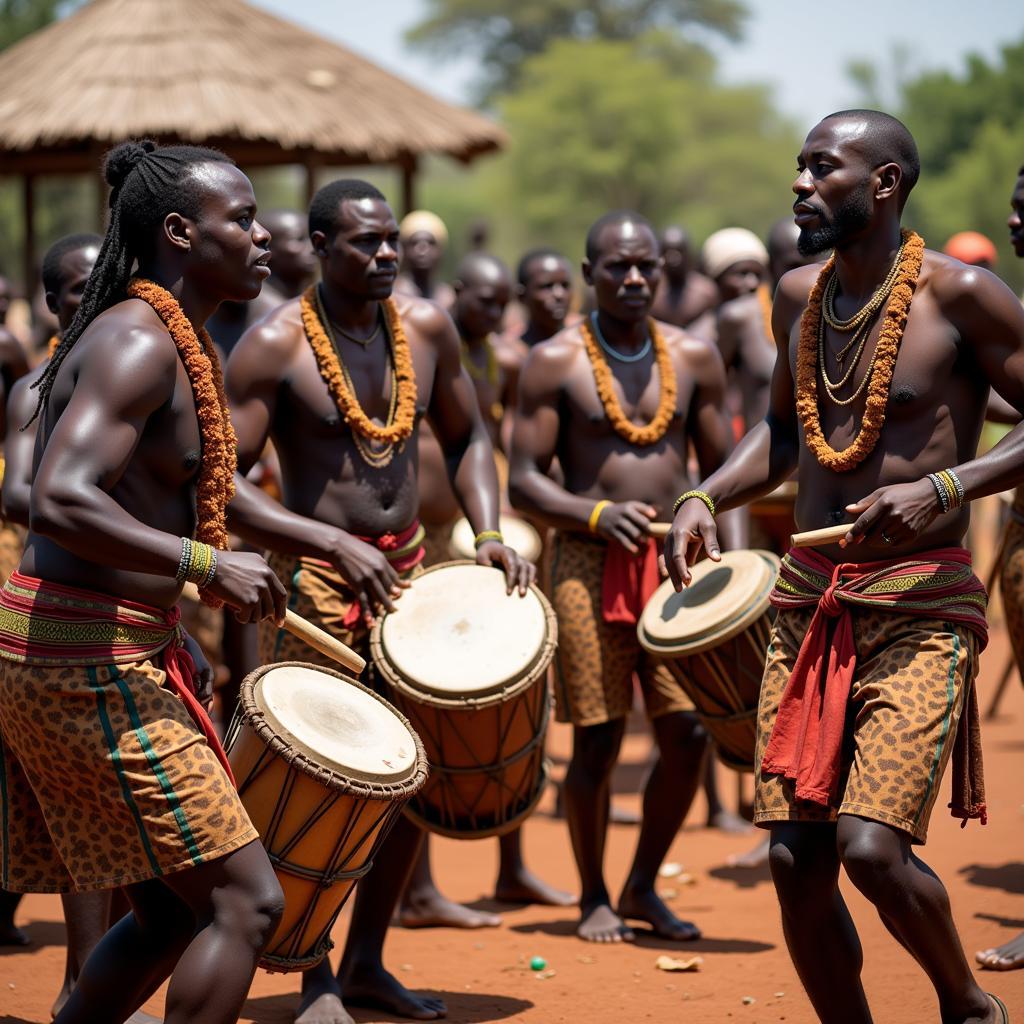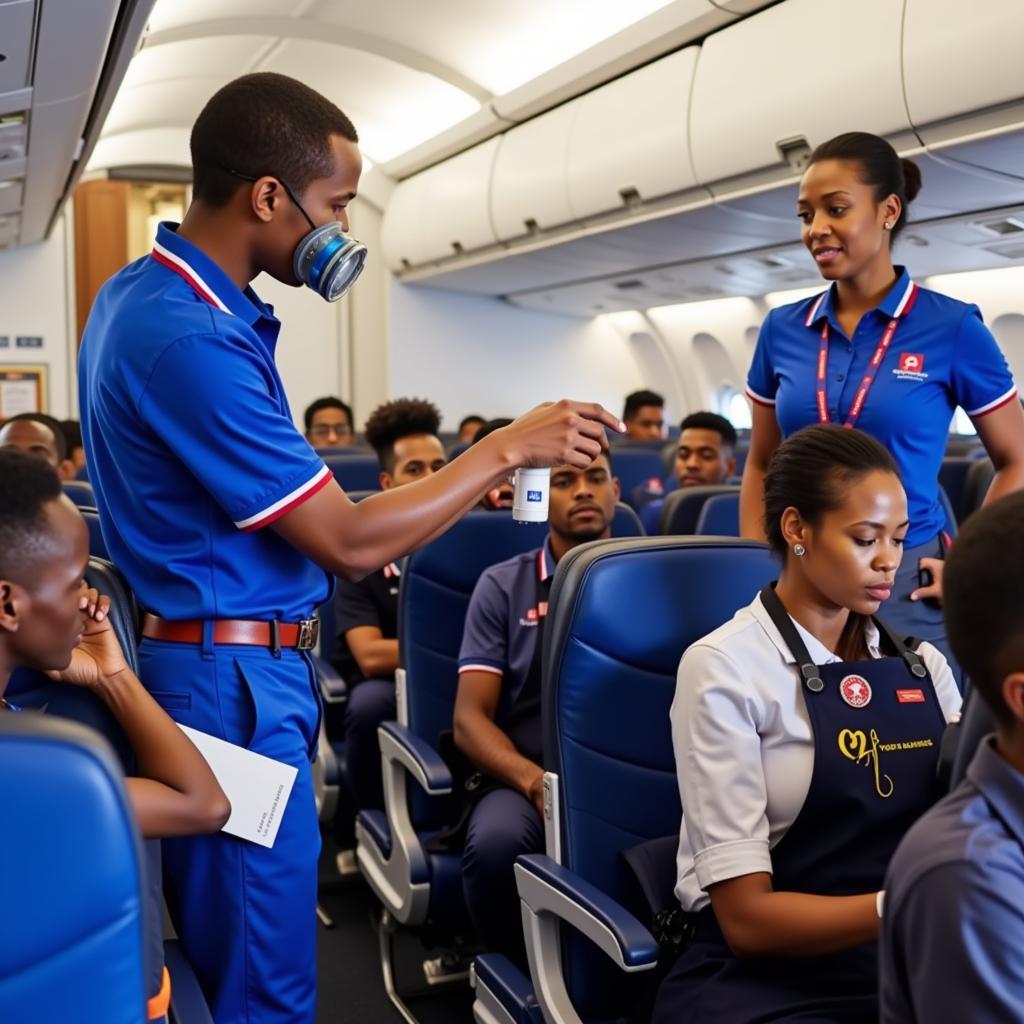About African Tribal People: A Journey into Rich Cultures
African tribal people represent a vast tapestry of cultures, traditions, and histories, shaping the very essence of the continent. From the nomadic pastoralists of the Sahara to the agricultural communities of the Great Rift Valley, their diverse ways of life offer a unique glimpse into human adaptability and resilience. This article explores the fascinating world of African tribal people, delving into their social structures, spiritual beliefs, artistic expressions, and the challenges they face in the modern world.
Understanding the Diversity of African Tribal People
It’s crucial to understand that the term “African tribal people” encompasses a multitude of distinct groups, each with its own unique identity, language, and customs. Generalizations can be misleading, as the continent boasts an incredible array of ethnicities, each contributing to the rich mosaic of African culture. For instance, the Himba people of Namibia are known for their ochre-covered skin and hair, a practice deeply rooted in their traditions and beliefs, while the Maasai of Kenya and Tanzania are renowned for their vibrant attire and intricate beadwork. These distinct cultural expressions highlight the importance of appreciating the nuanced tapestry of African tribal life. After this introductory overview, let’s delve deeper into specific aspects of their lives. You might also be interested in learning more about about south african tribal people.
Social Structures and Governance within African Tribes
African tribal societies often have complex social structures, ranging from patriarchal systems to more egalitarian communities. Many tribes are organized around kinship ties, with elders playing a vital role in decision-making and conflict resolution. Traditional leadership roles, often hereditary, are crucial for maintaining social order and upholding cultural values. These structures are often deeply intertwined with spiritual beliefs and practices, which we will explore further in the next section.
 African Tribal Council Meeting in Progress
African Tribal Council Meeting in Progress
The Spiritual World of African Tribal People
Spirituality plays a significant role in the lives of many African tribal people. Ancestor veneration, animism, and a deep connection to the natural world are common themes. Rituals and ceremonies mark important life events, such as births, deaths, and harvests, strengthening community bonds and reinforcing cultural values. These beliefs often offer a framework for understanding the world and provide guidance for navigating life’s challenges.
Art, Music, and Storytelling in Tribal Cultures
Art, music, and storytelling are integral parts of African tribal cultures, serving as powerful forms of expression and communication. From intricate mask carving and vibrant body painting to rhythmic drumming and captivating storytelling traditions, these artistic forms reflect the unique perspectives and experiences of each tribe. They are not merely forms of entertainment but also serve as vehicles for transmitting knowledge, values, and history across generations. Did you know about the significance of the african giraffe sculpture?
 African Tribal Music Performance with Drums and Dance
African Tribal Music Performance with Drums and Dance
Challenges Faced by African Tribal People in the Modern World
African tribal people face numerous challenges in the contemporary world, including land encroachment, resource depletion, and the pressures of globalization. Maintaining their traditional ways of life while adapting to a rapidly changing world presents a significant dilemma. Efforts to preserve their cultural heritage and empower tribal communities are essential for ensuring their future. Learn more about inspiring african lady tribal leaders who are working to protect their communities.
Conclusion: Preserving and Celebrating African Tribal Cultures
African tribal people represent a vital part of the world’s cultural heritage. Their diverse traditions, languages, and ways of life offer invaluable insights into the human experience. Understanding and appreciating these cultures is not only enriching but also essential for promoting intercultural dialogue and fostering a more inclusive global community. Let’s continue to learn about and celebrate the rich tapestry of African tribal people. You can also explore information on african american tattoos for a deeper understanding of cultural expressions through body art.
FAQ
- What are some of the largest tribal groups in Africa?
- How do tribal communities adapt to climate change?
- What role do women play in traditional African societies?
- What are some examples of traditional African art forms?
- How can we support the preservation of tribal cultures?
- What are the main challenges facing tribal communities today?
- What are some common misconceptions About African Tribal People?
Suggested Further Reading:
- Explore the customs and traditions of specific tribes, such as the Zulu, Yoruba, and Igbo.
- Research the impact of colonialism on African tribal communities.
- Investigate the role of traditional medicine in tribal societies.
Need more assistance? Contact us 24/7: Phone: +255768904061, Email: kaka.mag@gmail.com, or visit us in Mbarali DC Mawindi, Kangaga, Tanzania.


